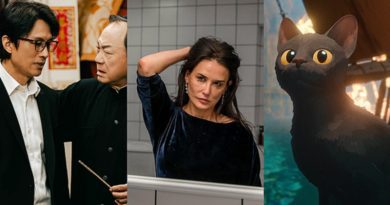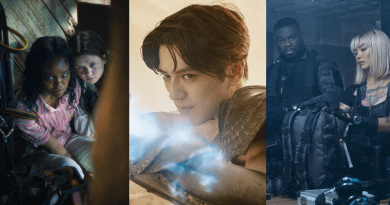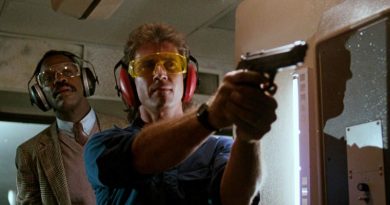A.I. Artificial Intelligence at 20: When Spielberg Meets Kubrick
Twenty years ago, Steven Spielberg took the world by surprise when he directed A.I. Artificial Intelligence, which turned out to be Stanley Kubrick’s decades-long-in-the-making pet project.
Kubrick, who unexpectedly passed away in 1999 in his sleep at the age of 70 due to a heart attack, had been attempting to adapt Brian Aldiss’ 1969 short story Supertoys Last All Summer Long since the early ’70s. Despite hiring various screenwriters to work on the script, the project was ultimately stalled after Kubrick felt the technology at the time wasn’t up to the standard.
But it wasn’t until the 1993 release of Spielberg’s Jurassic Park that Kubrick convinced his vision could finally be fulfilled. He even wanted Spielberg to direct the film, where they happened to be close friends for almost 20 years. Using Kubrick’s existing story treatment and conceptual art, Spielberg went on to complete the script — his first in 19 years since serving as a co-writer for Tobe Hooper’s Poltergeist back in 1982.
In case you have forgotten what A.I. Artificial Intelligence was all about, the film tells a story about an android boy named David (Haley Joel Osment), who programmed to love just like a real child. He is later “adopted” by Henry and Monica Swinton (Sam Robards, Frances O’Connor), whose comatose human son Martin (Jake Thomas) remains cryogenically frozen until a cure for his rare disease is found.
As David begins to build a relationship with the family, their human son has finally recovered and brought home. Things get complicated when jealousy between Martin and David arises, which eventually leads Monica to abandon him in the woods one day. David is basically on his own with his mecha pet bear Teddy (voiced by Jack Angel) by his side. From there, he subsequently met and befriend a robotic male prostitute named Gigolo Joe (Jude Law) while embarking on an epic journey to find the Blue Fairy to become a real boy just like Pinocchio in the storybook.
I recently revisited A.I. Artificial Intelligence on Netflix and the film still resonates strongly even today. The combination of Spielberg’s visionary touches and Kubrick’s cerebral storytelling is truly one of its kind. Besides, it’s not every day we get to see among two of the greatest filmmakers in cinematic history collaborated in such an ambitious film project.
Although the production only took place after Kubrick’s untimely death, Spielberg remains largely faithful to Kubrick’s original vision. Right to the point where he convincingly emulates the late director’s filmmaking style that meshes the chilling, yet haunting look and feel of Kubrick’s A Clockwork Orange (1971) and 2001: A Space Odyssey (1968). I understand those who have grown accustomed to Spielberg’s mainstream-friendly sentiment-and-spectacle approach might be disappointed with his darker take depicted in A.I. Artificial Intelligence. In other words, this is not like the same league of sci-fi wonders seen in Close Encounters of the Third Kind (1977) and E.T. the Extra-Terrestrial (1982).
Perhaps this was the result that A.I. Artificial Intelligence received mixed responses from both critics and audiences alike at the time of its release. Given the hefty US$100 million budget, the film only managed to collect US$78.6 million at the domestic box office. However, it fared better in the international markets after bringing in US$157.3 million for a cumulative total of respectable but unspectacular US$235.9 million worldwide.
A.I. Artificial Intelligence is clearly a niche film. The kind that appeals more to fans of Kubrick’s works than Spielberg’s. The latter’s familiar themes of family dynamics and childhood may have been present in this film but A.I. Artificial Intelligence is more interested to challenge the viewers with its evocative subject matter. And while the subject matter in question is largely indebted to Blade Runner-like fundamental what-made-us-human story element, as in the case of Haley Joel Osment’s David, Spielberg still does a great job keeping me intrigued over the course of 146 minutes.
Of course, not everything works well in this film, particularly the way Spielberg misplaced his trademark of sugarcoated sentimentality in some of the scenes. It was the only major downside that he could have avoided or at least toning them down considerably.
From the technical point of view, A.I. Artificial Intelligence is blessed with Rick Carter’s impressive production design as well as both Industrial Light & Magic and Stan Winston’s top-notch special and makeup effects. Janusz Kaminski’s perfectly atmospheric cinematography deserves a mention as well and so does John Williams’ heartfelt and at times, provocative classical-style score.
Haley Joel Osment steals the most limelight here as the curiously emotional android boy, David while Jude Law delivers solid support as Gigolo Joe. Then, there’s the old and super-intelligent talking teddy bear named Teddy, where Jack Angel’s voice talent eerily evokes the sound of HAL 9000 from 2001: A Space Odyssey.
While Spielberg’s Kubrickian-style direction is admirable, I always wondered what would it be like if Kubrick himself was still alive at the time and personally directed A.I. Artificial Intelligence. Looking back at Kubrick’s past works, the result might have been more emotionally cold and detached and even significantly thought-provoking. His last film before his death was 1999’s Eyes Wide Shut.
As for Spielberg, this was the last time he made a dark and brooding sci-fi film. His subsequent return to the same genre was more commercially minded by comparison, as evidently seen in Minority Report (2002), War of the Worlds (2005) and Ready Player One (2018).




